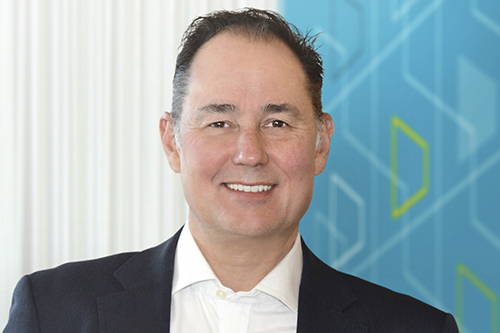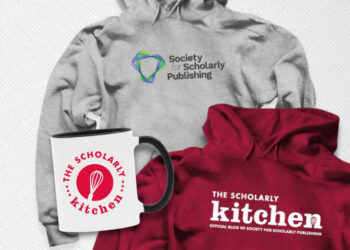This is the second post in a new series of perspectives from some of Publishing’s leaders across the non-profit and profit sectors of our industry. How did these leaders get into publishing? What excites them? What is their vision for the future of publishing, and indeed for the business and careers of all those working at their organization? We rarely gain these insights so we are excited to give voice to some of the key leaders in the academic publishing world.
 Today, we talk to Steven Inchcoombe. Steven is Chief Publishing Officer for Springer Nature, and a member of the Management Board.
Today, we talk to Steven Inchcoombe. Steven is Chief Publishing Officer for Springer Nature, and a member of the Management Board.
What was your route into publishing?
Well, it wasn’t conventional. I studied physics at Oxford but then became an accountant at Price Waterhouse before joining a financial database company as their management accountant. I escaped finance function and moved into commercial, product and strategy areas. They were acquired by the Financial Times and via a series of promotions I became head of FT.com and then Publisher of Financial Times. Then I returned to my first love – science – joining Macmillan and being made Managing Director of Nature Publishing Group. That was 16 years ago. Since then, the merger has only made it more interesting and impactful.
Could you tell our readers a little about what drives you as a leader of Springer Nature?
I believe in science, the huge benefits of research, and the importance of our role as publishers in achieving those impacts. Of course, the great colleagues I get to work with at Springer Nature are a frequent inspiration. I especially like building teams of people with complementary capabilities that can really excel together.
As a leader in academic publishing, what most excites you right now?
I do think that making virtually all aspects of science open – its outcomes (i.e., articles and books), its data, its code, its techniques, etc. – has huge potential to improve trust in science and to accelerate its impact. Targeting this at finding solutions to UN’s Sustainable Development Goals (SDGs) has to be the most important and exciting opportunity we all face. This will require imagination and an ability to better combine people and technology than ever before.
How is Springer Nature positioned to serve the next generation of students, researchers and professionals?
Springer Nature has Research, Healthcare, Education, and Professional divisions. Each is focused on the needs of its core customers – both those that use what we do and those that pay for it. In my area, Research, where I think we employ more ex-researchers as editors than any other organization, we continuously survey our customers and adapt based on what they are telling us, and we have our own ‘lab’ areas to create and test new ideas with customers to look beyond their existing needs.
What do you anticipate the major challenges will be for Springer Nature, and indeed the publishing industry, over the next five years?
I think the greatest challenge is for us to find a way to make the transition to Open Science, including open access (OA), sustainable and equitable for all. Beyond this core challenge, we need to make sure that the determined and adaptable criminals and state actors that want to use our networks, our products, and our content to make illicit gains or gain access to the personal and institutional data of our customers are not able to succeed. These damage our customers and our reputations, and we must work together to prevent this.
What does open access / public access mean for your business?
We strongly believe in the benefits to the whole research process of immediate OA to the article version of record (VoR) which means Gold OA. Other forms, such as Public Access (PA), offer benefits mainly outside of the research system, but so far we haven’t found a way of making them financially sustainable. Of course, OA is a precursor to Open Science, which I think is the greatest prize, but OA by itself still enables many benefits such as getting more research out to more researchers faster, into the hands of policy makers and businesses, and the wider public.
What publishing innovations are you most proud of?
Those that make the lives of individual researchers easier, those that make the work of the wider research community more effective, and those that increase the awareness and understanding of the wider public. For me, I look at the work we have been doing using AI to enable summarizations (for different levels of knowledge), language improvement and auto-translation, structured support of peer-reviewers, helping book authors survey the literature, and addressing integrity concerns such as software to spot plagiarism, tortured phrases, and image manipulation. Clearly humans still play an important role in these use cases but technology is enabling us to be more adaptive and to operate at a scale that we could previously only dream of.
What is the future of hybrid/remote working at Springer Nature?
We think that for a company to thrive it needs a distinctive culture and set of values. To make that work people need to come together frequently enough to have a good understanding of each other and strong enough relationships for high levels of trust to exist. The workplace, especially if designed to enable this, is much better for this than online and especially so when the maximum number of relevant people are together at one time. That said, for many, personal productivity and work/life balance can be improved by working part of the time remotely. So, we think hybrid enables everyone to get the best out of themselves and each other.
What do the next generation of academic publishing jobs look like to you?
I think publishing will remain very people focused but the balance of roles in publishers will become more technical, requiring a better understanding of data and the application of technology.
Discussion
3 Thoughts on "Chefs de Cuisine: Perspectives from Publishing’s Top Table — Steven Inchcoombe"
Another good interview Robert.
“I believe in science, the huge benefits of research, and the importance of our role as publishers in achieving those impacts”.
One of the quotable quotes from this conversation with Steven Inchcoombe.
Could Steven Inchcoombe define the word “sustainable”? Is the sustainability of a library, for example, the same as that of a diamond publisher, and that of a for-profit publisher? And, if not, why s it that I regularly encounter this word used indiscriminately in the literature? Is it mere sloppiness?
There’s not one direct mention of Climate Change in this interview.
This fits with the general impression of greenwashing from Springer-Nature and their continued referencing of ‘offsetting’ (i.e. disproven window-dressing) to justify the ongoing pollution associated with their operations, particularly in terms of Scope 3.
It’s shameful that their corporate performance doesn’t live up to the climate science that they publish.



